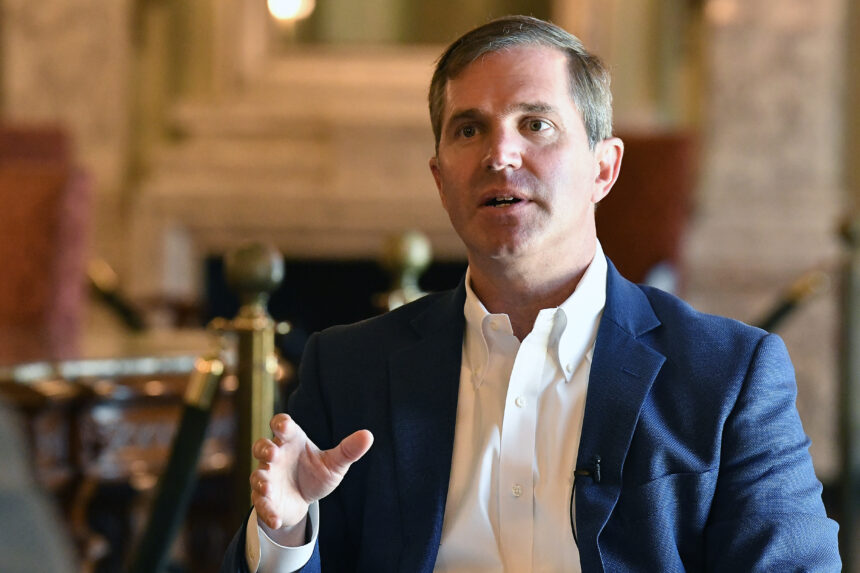Kentucky Governor Andy Beshear recently spoke out against California Governor Gavin Newsom for hosting controversial figure Steve Bannon on his new podcast. Beshear, a rising star in the Democratic Party, expressed concern over Newsom giving a platform to Bannon, known for his divisive rhetoric and support of Trump’s “America first” agenda.
At a Democratic policy retreat, Beshear emphasized the importance of engaging in dialogue with a variety of viewpoints but cautioned against amplifying voices like Bannon’s that promote hatred and violence. This critique of Newsom, who is rumored to be considering a presidential run, highlights the ongoing debate within the Democratic Party post-Trump era.
Newsom’s podcast, aimed at bridging the gap with conservative audiences, has faced backlash for featuring guests like Charlie Kirk and now Bannon. In his conversation with Bannon, the former White House strategist perpetuated baseless claims about the 2020 election while discussing economic policies.
Despite the criticism, Newsom defended his decision to interview Bannon, citing the need to understand the Trump movement and engage with different perspectives. However, the backlash from figures like Beshear and former Republican Rep. Adam Kinzinger underscores the division within the political landscape.
As Newsom prepares to host Minnesota Governor Tim Walz on his podcast, the controversy surrounding his choice of guests continues to spark debate. While some see it as a strategic move to connect with conservative voters, others view it as a risky endeavor that could backfire.
The clash between Beshear and Newsom serves as a microcosm of the larger struggle within the Democratic Party to define its identity and messaging in a post-Trump era. As the party navigates these challenges, the role of leaders like Beshear in shaping the future direction of the party becomes increasingly crucial.








